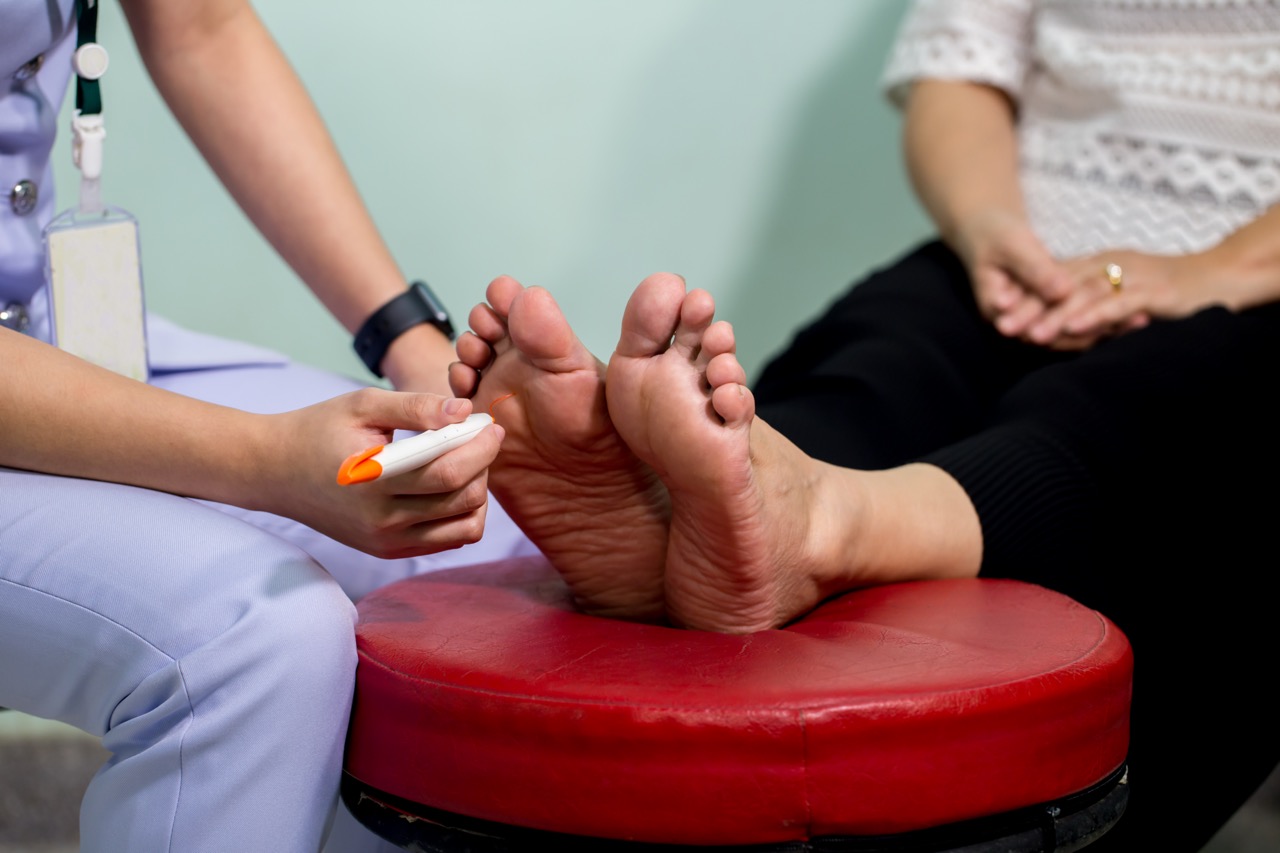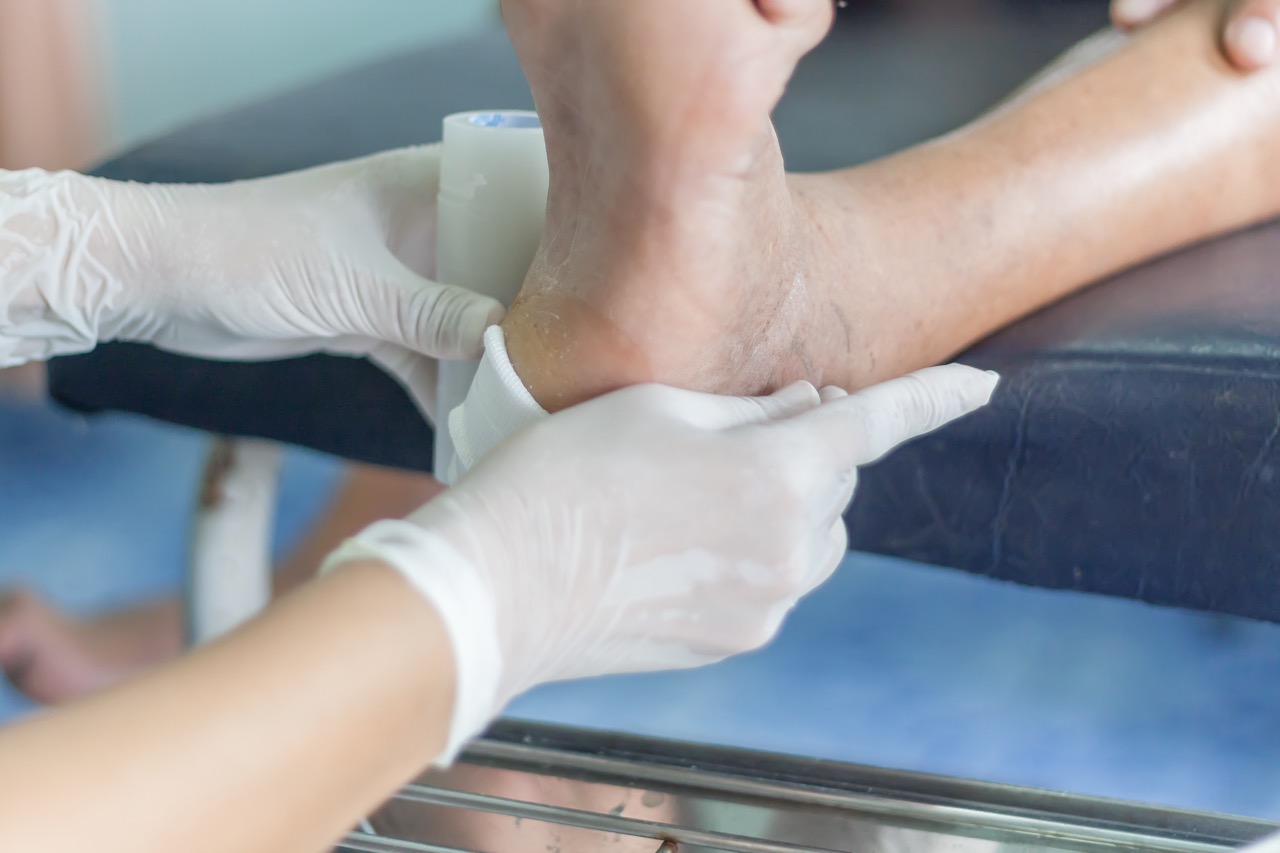Diabetic Wound Care
Diabetic wound care is essential for maintaining the health and well-being of individuals with diabetes. The increased risk of foot and ankle complications, combined with potential delays in the healing process, can lead to severe consequences if left untreated. Our team of specialists is here to ensure that you receive the best possible care and guidance in managing your diabetic wounds.
What Is Diabetic Wound Care?
Diabetic wound care is the process of treating and managing wounds that occur in people with diabetes, specifically on the feet and ankles. These wounds can be challenging to heal due to factors such as reduced blood flow and nerve damage, making proper care crucial for avoiding complications and promoting healing.
What Causes Diabetic Wounds on the Feet and Ankles?
Diabetic wounds are often caused by a combination of factors, including neuropathy (nerve damage), peripheral vascular disease (reduced blood flow), and impaired immune function. This can lead to a reduced sensation in the feet, making it difficult for individuals to notice small injuries or pressure points that can develop into wounds.
Types of Wound Care
These are the different types of treatment we use in wound care. Not every wound needs each treatment, so our team will determine the best course of action to treat each wound.
Debridement
Debridement is a critical aspect of wound care, involving removing dead or infected tissue from the wound to promote healing and reduce the risk of infection. This process can be performed using several techniques, such as sharp debridement (using surgical instruments), mechanical debridement (using wet-to-dry dressings or wound irrigation), enzymatic debridement (applying topical agents that break down necrotic tissue), and autolytic debridement (using the body’s enzymes and moisture-retentive dressings to dissolve dead tissue).
Wound Dressings
Specialized wound dressings play a vital role in the healing process. They are designed to maintain a moist environment, protect the wound from bacteria, and absorb excess fluids.
There are various types of dressings available, including hydrocolloids, foam dressings, alginates, and hydrogels. The choice of dressing depends on the wound type, location, and healing stage.
Negative Wound Pressure Therapy
NPWT, also known as vacuum-assisted closure (VAC), is a treatment that uses vacuum pressure to remove fluids, reduce edema, and promote the growth of healthy tissue.
This therapy involves placing a foam dressing inside the wound, sealing it with a transparent adhesive film, and connecting it to a vacuum pump. The continuous or intermittent suction helps draw wound edges together, stimulates granulation tissue formation, and enhances blood flow to the wound area.
Antibiotic Creams
Topical antibiotic medications are applied to the wound to prevent or treat infections. These creams are often used in combination with other wound care treatments, such as dressings or debridement.
The choice of antibiotic cream depends on the type of bacteria present, the severity of the infection, and the patient’s medical history. It is essential to use these medications as prescribed to minimize the risk of antibiotic resistance.
Skin Substitutes
Skin substitutes are advanced materials that can aid in wound closure and provide a protective barrier for the wound. They can be derived from biological sources, such as human or animal tissue, or synthetic materials designed to mimic the structure and function of the skin.
Skin substitutes can be used for various wound types, including diabetic ulcers, pressure ulcers, and burns. They promote healing by providing a scaffold for cell growth, stimulating the body’s natural repair mechanisms, and reducing pain and inflammation.
Indeed there are several types of wound care treatments available, each with unique benefits and applications; the choice of treatment depends on the wound characteristics, the patient’s overall health, and the healthcare provider’s expertise. Effective wound care is crucial for promoting healing, minimizing complications, and improving the quality of life for individuals with diabetic wounds.
Why is it Important to Get These Wounds Treated?
Diabetic wounds, if left untreated, can result in severe complications that can significantly impact an individual’s quality of life. Prompt and appropriate treatment is vital for preventing these complications and promoting healing. Here are some reasons why it is essential to get diabetic wounds treated:
Open Lacerations
Untreated wounds can lead to open lacerations, which are prone to infection and slow to heal. These lacerations can cause severe pain and discomfort, limit mobility, and negatively affect daily activities. Early intervention can minimize the risk of open lacerations and promote faster healing.
Infections
Diabetic wounds are more susceptible to infections due to the compromised immune system and reduced blood flow in individuals with diabetes. Infections can progress rapidly and may lead to life-threatening complications like sepsis or gangrene. Timely treatment helps to reduce the risk of infections and ensure a quicker recovery.
Ulcers
Diabetic foot ulcers are a common and severe complication resulting from untreated wounds. Ulcers can lead to extensive tissue damage, chronic pain, and the potential need for amputation if left untreated. Proper wound care, including appropriate offloading, debridement, and dressings, can prevent ulcers from developing or worsening.
Amputation Risk
Severe cases of untreated diabetic wounds can ultimately lead to the need for amputation, dramatically impacting an individual’s independence and quality of life. Seeking early treatment can help prevent complications that necessitate amputation.
Reduced Healing Capacity
Diabetes and neuropathy can cause reduced healing capacity, making it more challenging for wounds to heal on their own. Early intervention and ongoing wound care can help overcome these challenges and accelerate the healing process.
Neuropathy Complications
People with neuropathy often experience a loss of sensation in their extremities, making it difficult to detect wounds and changes in their condition. Regular check-ups and prompt treatment can help identify and address issues before they become severe complications.
Overall Health
Proper wound care can significantly impact an individual’s overall health and well-being. By addressing diabetic wounds promptly, patients can avoid complications that can exacerbate other health conditions, such as heart disease, kidney disease, or vision problems.
As you can see, it is vital for individuals with diabetes and/or neuropathy to seek treatment for their wounds as soon as possible. Proper care and early intervention can prevent further complications, enhance healing, and improve the patient’s overall quality of life.
Advanced Wound Care in Roseville, CA and Carmichael CA
Our team of skilled professionals is equipped to handle a wide range of wounds, from small to large, that may not be healing on their own. We utilize advanced wound care techniques and state-of-the-art technology to provide the best possible care for our patients in Roseville, CA, Carmichael, CA, and the surrounding Sacramento area.
If you or a loved one is experiencing a diabetic wound or any complications related to diabetes, do not hesitate to reach out to our offices for help. Our compassionate and knowledgeable team is here to provide the care and support you need to ensure proper healing and improved overall health.
Contact us today in Roseville, CA, and Carmichael, CA to schedule an appointment and take the first step toward effective diabetic wound care.
Looking to schedule an appointment with a physician?
Carmichael Office
6620 Coyle Avenue,
Suite 202
Carmichael, CA 95608
Roseville Office
576 N Sunrise Avenue,
Suite 230
Roseville, CA 95661
Folsom Office
1580 Creekside Drive,
Suite 100 & 110
Folsom, CA 95630
Social
© Premier Podiatry & Orthopedics. All Rights Reserved. | Privacy Policy


